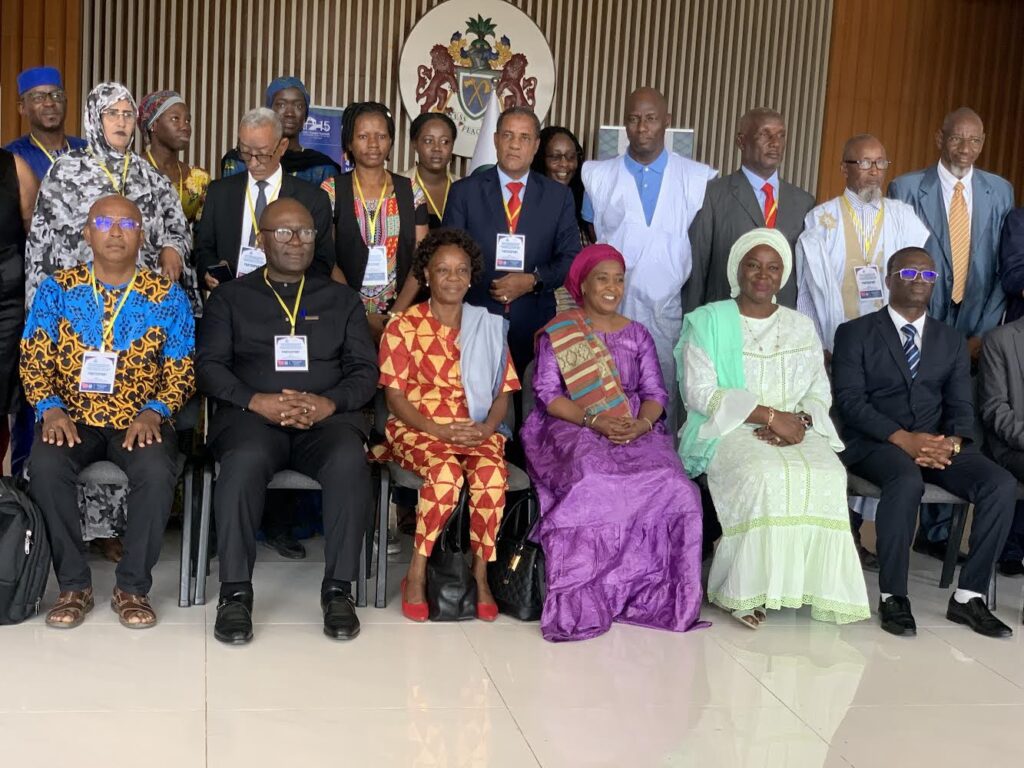ACHPR’s 79th Regular Session Hosts Forum on NGO Engagement

By Ramatoulie Jawo
The African Centre for Democracy and Human Rights Studies (ACDHRS), in partnership with the Open Society Foundations and the African Commission on Human and Peoples’ Rights (ACHPR), convened a forum during the 79th ordinary session of the ACHPRS. Held at the Sir Dawda Kairaba Jawara Conference Centre in Bijilo, the forum addressed the role of Non-Governmental Organizations (NGOs) in advancing human rights and democracy in Africa.
Under the theme “Educate an African Fit for the 21st Century: Building Resilient Education Systems for Increased Access to Inclusive, Lifelong, Quality, and Relevant Learning in Africa,” the event aimed to explore strategies for enhancing education systems across the continent.
As a leading advocate for human rights, democracy, and good governance in Africa, ACDHRS has a rich history of driving positive change. Through their efforts, they empower individuals and organizations to work towards a fair and equitable society throughout Africa.
During the opening ceremony, Mrs. Hannah Forster, Executive Director of ACDHRS, underscored the importance of collective commitment in advancing human rights agendas. She emphasized the shared responsibility in promoting and safeguarding human rights, acknowledging the vital role civil society plays alongside governments and other stakeholders.
“The promotion and protection of human rights remains a collective responsibility. Consequently, it must be promoted, and protected by everyone, everywhere, every time, and every day. It’s evidence that civil society has not rested on it own, and has continued to play its role in the realization of human rights, and fundamental freedoms to complement the efforts of government and other partners. Surely together, state and non states actors can achieve a great deal more when they collaborate and support each other in this noble task,” she emphasized.
Honorable Janet Ramatoulie Sallah-Njie, Vice Chairperson of the African Commission for Human and Peoples’ Rights, highlighted the pivotal role of education in addressing challenges like poverty and human rights violations. She emphasized the need for investment in rural schools, grants for vulnerable groups, and ensuring educational access for all, including girls, children with disabilities, and indigenous communities.
“We need to invest in schools in rural areas, provide grants as lifelines for vulnerable groups, and path the way for the education of every child, including girls, children with disabilities, and those from the indigenous communities. In so doing we are empowering African youth, preparing them towards source of economy perspective, and social harmony,” she said.
Justice Aishatou Jallow Sey, representing the chief justice, aligned the forum’s theme with the African Union’s overarching theme of the year. She emphasized education as a cornerstone of development, democracy, and human rights, stressing its role in empowering individuals and fostering equality.
“ Therefore, We gather under the banner of a critical theme that echoes across our continent Educate an African Fit for the 21st Century Building Resilient Education Systems for Increased Access to Inclusive, Lifelong, Quality, and Relevant Learning in Africa. Education stands as the cornerstone of development, democracy, and human rights. It is not merely a path to personal advancement but a fundamental right and a collective responsibility. Quality education empowers individuals, fosters equality, and drives inclusive growth,” she said.
She emphasized that Education should not be viewed as a mere expense but rather as a valuable investment in their shared prosperity. She asserted that it serves as an investment in fostering peace, stability, and resilience against divisive forces.
Robert Athewa, representing the Network of African Human Rights Institutions, underscored the urgency of addressing educational challenges in Africa, especially in rural areas. He advocated for enhanced collaboration between National Human Rights Institutions and governmental bodies to tackle these issues effectively.

